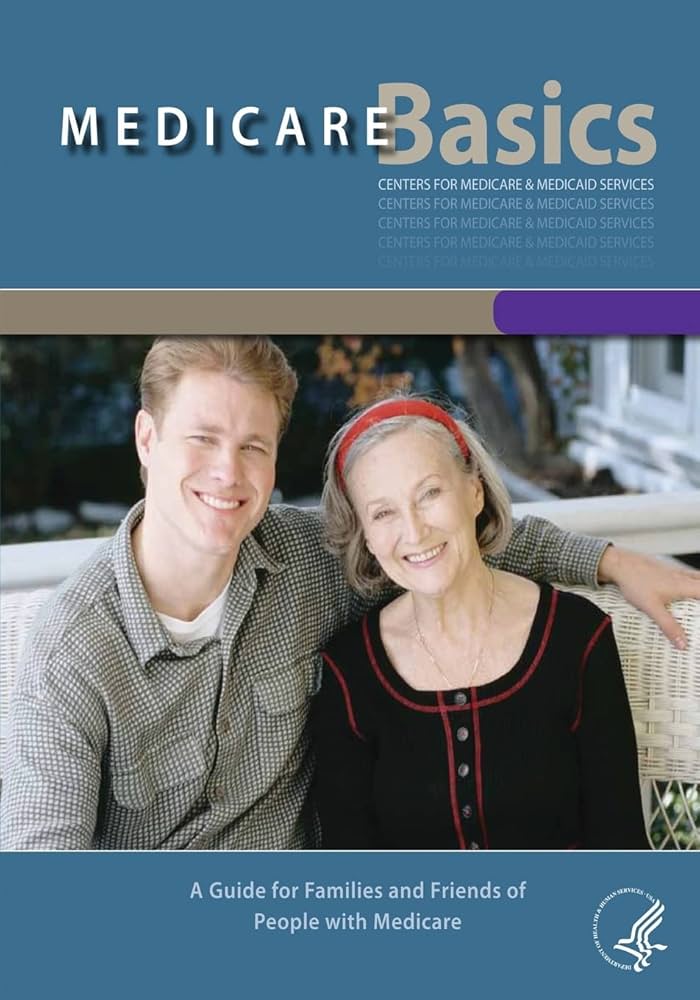In a world where health systems are constantly evolving, it is essential to understand the appeal process related to Original Medicare and Medicare Advantage. This guide, developed by the National Council on Aging, aims to demystify these processes to allow seniors to easily navigate their medical coverage options. By providing clear and concise information, we aim to help beneficiaries make informed choices, while ensuring they receive the assistance needed to advocate for their rights and concerns. Your health deserves to be at the heart of your concerns, and this article guides you towards this crucial understanding.
The U.S. healthcare system, particularly Medicare, may seem complicated, but understanding how it works is essential to getting the most out of it. This article explores the appeals process for Original Medicare and Medicare Advantage in detail, based on resources from the National Council on Aging. Through precise information and clear steps, we will provide you with the tools necessary to effectively navigate this maze, allowing everyone to receive the healthcare they need.
Table des matières
ToggleWhat is Original Medicare and Medicare Advantage?
Original Medicare is the traditional health insurance system, composed of two parts: Part A, which covers hospitalization, and Part B, which covers medical care. In contrast, Medicare Advantage (also known as Medicare Part C) is a plan offered by private companies and approved by Medicare, offering an alternative that combines all of the benefits of Original Medicare, often with additional benefits.
Why appeal?
It may happen that policyholders need to contest a decision made regarding their healthcare coverage. Whether for refused services or unforeseen costs, the appeal process is a crucial step that can allow beneficiaries to recover rights that are often overlooked. Understanding this process is therefore vital to guarantee access to care.
Appeal Process for Original Medicare
For those insured under Original Medicare, the appeals process typically begins when a healthcare provider refuses treatment or Medicare does not cover a service. In this case, the patient must first receive a notice explaining the decision. Then he can perform the following steps:
- Gather all necessary evidence regarding the coverage application.
- Submit an appeal form to Medicare, remembering to respect the deadlines indicated.
For more information, the Medicare official website offers additional resources to guide policyholders in this process.
Medicare Advantage Appeal Process
The appeal process for Medicare Advantage follows a similar procedure, but it varies depending on the insurance company. Typically, the steps are as follows:
- Check the notice of award received and the reason for refusal.
- Contact the insurance company’s customer service department to discuss the call.
- Complete the insurance-specific appeal form and submit it within the required time frame.
Having information on hand about Medicare laws and policies can be helpful. For example, consult reliable resources such as those offered by Responsible Care Organizations can enlighten policyholders on their rights.
How to maximize your chances of success?
To maximize your chances of getting a favorable response to calls, follow these recommendations:
- Document carefully all the discussions and decisions, this can make the difference in your file.
- Act quickly, always respect the deadlines for submitting appeals.
- Ask for help if necessary. Advisors, such as those from the PCOA, can help you understand the steps to follow.
Understand the appeal process as part of Original Medicare And Medicare Advantage is essential for all beneficiaries. By following this guide, policyholders can confidently and efficiently navigate the system to ensure access to quality care. Keep in mind that aging is a natural process that requires special attention to preserve the health of the elderly, regardless of their insurance plan. Be proactive and defend your rights to care!

The American health care system is large and complex, particularly when it comes to Original Medicare and of Medicare Advantage. Understanding the appeals process for these two plans can be crucial to getting the care you need. This article provides you with a concise guide, offered by the National Council on Aging, to shed light on this entire process, while offering you tips and tricks for effectively navigating the Medicare system.
Understanding Original Medicare and Medicare Advantage
Before diving into the appeal process, it is important to clarify the fundamental differences between Original Medicare And Medicare Advantage. Original Medicare is a government-run program that provides basic health care coverage, while Medicare Advantage, also called Medicare Part C, is offered by private companies and often includes additional benefits such as dental and vision coverage. This distinction is essential because it influences the way appeals can be formulated and processed.
The Original Medicare appeals process
When an application for coverage is denied by Original Medicare, there is a multi-step appeal process. It is essential to understand that you have the right to challenge any decision that you are not satisfied with. The first step is to review the decision and understand the reasons for the refusal. Next, gather all the relevant documents and information regarding your application in order to build a solid file.
Submit a formal appeal
To submit an appeal, it is necessary to do so within 120 days after receiving the notification of refusal. You will need to complete the appeal form and submit it to the relevant entity. Be precise and concise in your explanations to maximize your chances of success when reviewing your file.
The Medicare Advantage Appeal Process
The appeal process for a Medicare Advantage plan may vary slightly depending on the healthcare provider. However, the basic principles remain similar. After a denial, you must contact your plan provider within 60 days. It is advisable to clarify the exact process with your insurance company, as some may receive requests over the phone while others require a written submission.
Evaluation of refusal
As with Original Medicare, it is essential to carefully consider why your application was denied. A well-prepared appeals document accompanied by all the necessary evidence will increase your chances of winning your case. Also call a professional if necessary, in order to fully understand each of the steps to follow.
Tips for Effectively Navigating the Appeal Process
To maximize your chances during the appeal process, always present your documents in a clear and organized manner. Establish a timeline for your communications and be persistent in your efforts. Do not hesitate to contact specialist advisors, such as those at National Council on Aging, who can provide you with valuable advice and answer your questions about Medicare appeals.
Understanding the appeal process Original Medicare And Medicare Advantage is essential to getting the most out of your health coverage. By familiarizing yourself with the necessary steps and arming yourself with practical tips, you can deal with rejections effectively. Don’t let a mishandled call compromise your rights and access to care. Act decisively and make sure your voice is heard.
If you have #Medicare along with another insurance, do you know who pays first for claims? Learn how Medicare coordinates with other coverage: https://t.co/lFA2QV1nYD pic.twitter.com/zSa1zIw5o9
— Medicare.gov (@MedicareGov) June 26, 2024
Understanding the Original Medicare and Medicare Advantage appeals process
Medicare plans, whether original or preferred, play a vital role in providing medical protection to seniors. However, navigating the details of the claims and appeals processes can seem confusing. This article aims to demystify the appeal process, providing a practical and accessible guide to better understand your rights and the necessary steps.
What is Medicare?
Medicare is a United States federal government health insurance program intended primarily for individuals aged 65 and older. It includes two main parts:
- Original Medicare, which is made up of parts A (hospital) and B (medical care).
- Medicare Advantage, which is a plan offered by private companies, usually combining all the benefits of Parts A and B, as well as other services.
Why make a call?
It may happen that services or care are deemed not covered or that payments are refused. Appeal A decision from Medicare is a crucial step in ensuring that you receive the support you need. This may involve specific doctors, hospitals, or treatments that you think should be covered by your plan.
Key steps in the appeal process
1. Consultation of documents
The first step in the appeal process is to review your documentation. You need to understand why a service was refused. This includes reviewing the letter you received from Medicare, which should specify the reasons for the denial.
2. Preparing for the call
Before making an appeal, gather all necessary documents, such as invoices, medical reports and any communications with your healthcare provider. This information may support your position during the call.
3. Submission of the appeal
Once prepared, you can submit your appeal. For Original Medicare, you must send the appeal form to the organization that manages your application. For Medicare Advantage, this may involve contacting your insurance company directly. Check the deadlines for submitting your appeal so you don’t miss critical windows.
4. Wait for the decision
After submitting your appeal, you will need to wait. Medicare has a maximum deadline of 60 days to respond to your request. During this time, it is recommended to remain proactive by regularly checking the status of your call.
What to do if the appeal is refused?
If your appeal is rejected, don’t be discouraged. You have the option to continue the process by forming a second call. It is even more important to carefully consider the reason for the rejection. Often, providing additional information or relevant medical documentation can make a difference.
Support is essential
Navigating the complexities of Medicare can be intimidating, but remember there are many resources available to you. THE National Council on Aging recommends never hesitating to contact insurance advisors or specialist lawyers, who can provide you with valuable assistance.
In summary, understanding the Medicare appeals process, whether Original or Advantage, is a valuable skill that ensures you are protecting your rights as a patient. By following these steps, you will be able to better navigate the system and get the care you deserve.







